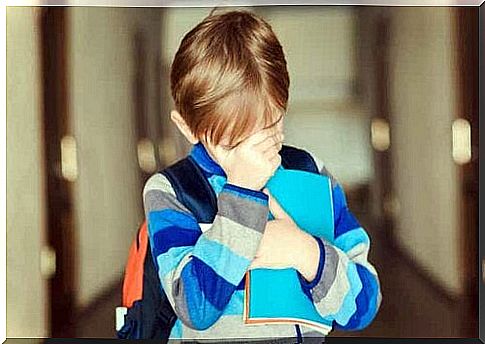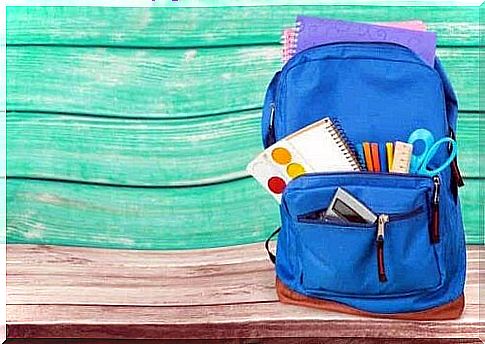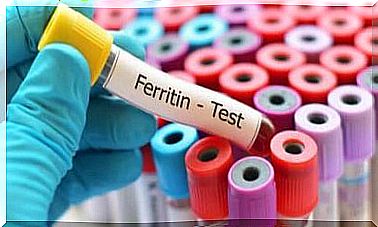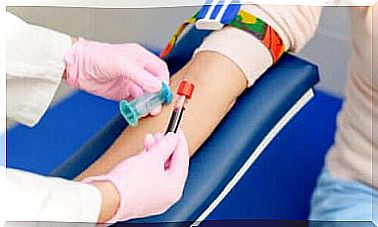Post-holiday Syndrome In Children: How You Can Help

Post-holiday syndrome in children is a transient mood that affects adjustment to routines, including school life. It may seem normal after a wonderful and fun vacation. Yet it only occurs in less than 8% of children.
The expectation of having to get up early to go to school after weeks of doing what they love is terrifying. The truth is that children with their enormous adaptability manage to overcome this hurdle without major problems. However, it never hurts to give them a hand.
The Causes of Post-Holiday Syndrome
If children initially reject the imposition of routines, much of the responsibility rests with the parents. They are the main players in the control of the elements that make up the daily life of the family. Part of it is related to the personality of the child. Another part corresponds to:
- the structure of the family.
- the parenting style of the parents.
- conflict at school.
- health issues.
- bullying.
- other stress factors.
Adults should be observant to rule out these problems as much as possible where possible, given the difficulty of children explaining what is happening to them.
How do you help a child overcome the post-holiday syndrome?

As in many conflict situations, communication is the key to a solution. Breaking the silence, ostracism and breaking the wall of bad moods and fear is a great way to relieve tension. However, getting there is not easy.
Before the signs of post-holiday syndrome appear in children (for example, if they show irritation and do not want to follow the obligatory routine), we should try not to force or blame them.
Instead, we need to involve them in the responsibilities of the new school term. This is even more necessary if they have recently changed schools.
Finding the Causes
Finding the factors that cause the disorder is a first step towards overcoming post-holiday syndrome in children. Review the schedules of rest, play, and responsibilities, and intervene if they overlap.
If you don’t notice major setbacks when you look inside the family, the cause may be external. Children may have trouble finding the words if the problem affects them personally.
It is up to us to ask questions about classmates and teachers, about the day at school, to have them portray or draw school scenes. Any utterance mechanism is valid (Spanish link).
Spend time with them to help resolve the post-holiday syndrome
During the holidays, adults often spend most of their time with the kids. Thus, the separation that the end of the holiday brings cannot be well received.
Finding a way to guide them, take them to school, and stay for a while to say goodbye are ways to help your kids. That way, the transitions aren’t so abrupt.
Provide trust and security
Parents have a view of problems that is colored by their own experiences. Children who feel unprotected assume that the unpleasant situation is a total dead end. You have to find a way to solve the problem together.
Know the environment to avoid post-holiday stress syndrome
Parents should pay attention to the environment in which they move and with which children interact. This applies to the environment and outside the home, including neighbors, friends and school.
Adults should visit the school regularly and try to engage in conversations with the management, teachers and assistants. From these conversations, parents can infer the quality of their children’s environment.
Adults should try to get to the bottom of relationships that may affect children. It is not about overprotection, but about knowing and recognizing that safety and trust in school is a social and collective construct.
How can post-holiday syndrome in children be prevented?

One strategy to help prevent post-holiday syndrome in children is to plan ahead. School calendars are set well in advance, so let’s take advantage of that to allow for delays and unforeseen events in the calendar.
Below we propose a series of actions related to the autonomous and personal management of rosters. However, they must be adapted to tastes and needs, as well as to work and social obligations.
Prepare school supplies with your child
Parents can involve the children in organizing their school supplies well in advance. The smell of paper and the bright colors of ink and stickers are always exciting. Preparing and arranging the backpack is a pre-routine that can elicit the best wishes.
Don’t do anything abruptly
Children do not tolerate sudden changes well. If they have slept in, going to school early is traumatic. You can adjust the hands of the clock in advance and start bedtime earlier and earlier.
Preparation also covers topics and assignments. Refreshing concepts and going through their texts prepare the children for going back to school.
convey a good mood
When worry and stress are contagious, so is a good mood. Life is complicated, but we must protect our children.
It’s about understanding that the emotional intelligence of the family comes about on the basis of alliances and support networks that facilitate their development.
The unity of the family bases its success on the fluid communication that embraces and celebrates transitions, changes and the overcoming of stages. In addition, the child must feel that they are part of it, integrated and recognized.
Planning is designing freedom
Adults should help organize children’s days. Otherwise, unnecessary rushing will introduce inconvenient factors into children’s lives. For example, haste indicates immaturity and is a stressor that radiates from adults to children.
Procrastination also causes tasks to pile up that sooner or later will lead to despair. However, if there is proper organization, parents will have plans and routines that include fun and recreation.
Children need as much fun as oxygen. The post-holiday syndrome is nothing more than a symptom of the feeling that they are going to lose their freedom. It is essential to plan outings, fun things and playdates for them. Remember: going back to school can and should be both fun and exciting!









